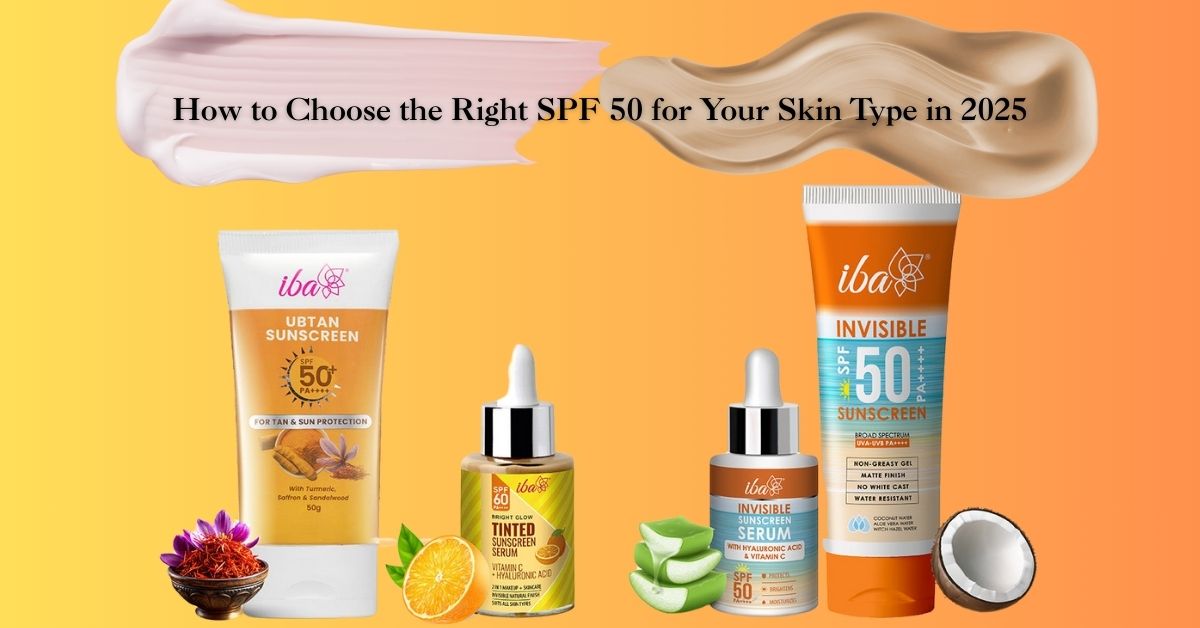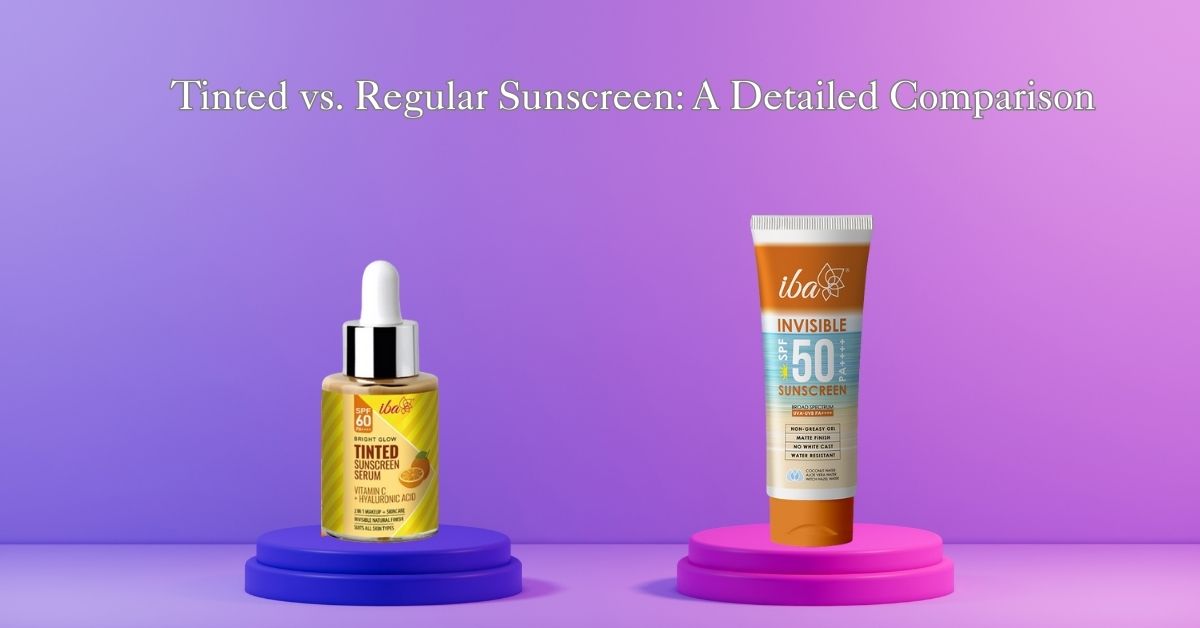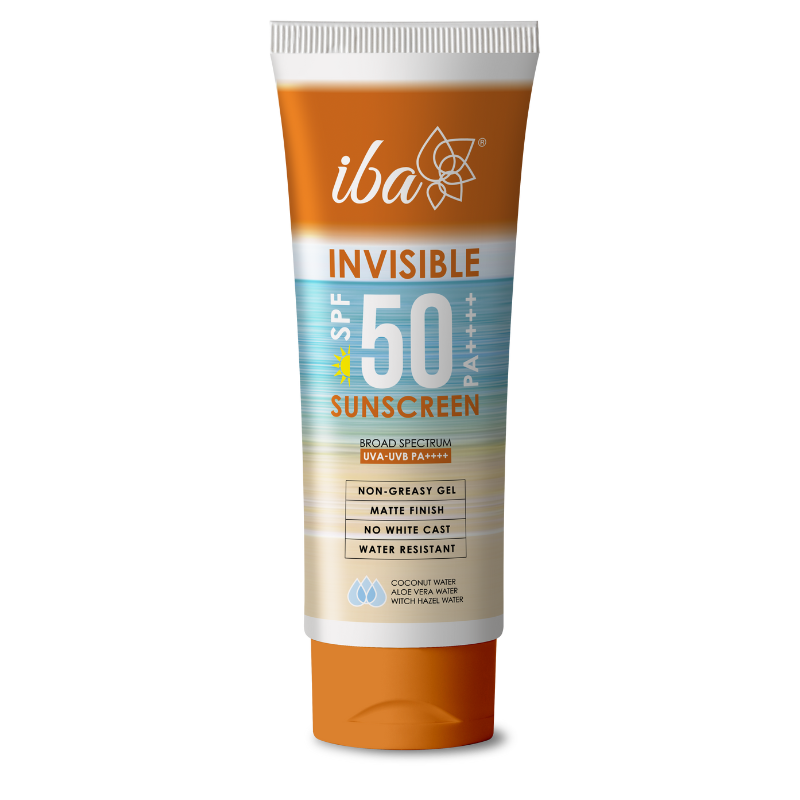SPF 30 vs SPF 50: Does the Extra Protection Make a Difference?
Selecting the best sunscreen for sun protection can be difficult, particularly if you're standing in the skincare aisle and trying to decide between SPF 30 and SPF 50. Both provide defence against the sun's damaging rays, but is there an actual difference? To help you make the greatest decision for your skin, let's dissect it.
 What is SPF?
What is SPF?
Sun Protection Factor, or SPF, gauges how well a sunscreen shields your skin from UVB rays, which are the kind of UV radiation that can lead to sunburn, skin damage, and even skin cancer. The figure indicates how long it would take for your skin to get red under the sun's UVB rays if you were wearing sunscreen as opposed to not wearing it.
What is SPF 50 Sunscreen?
A sunscreen with an SPF of 50 provides more protection than one with a lower SPF. In particular, it blocks over 98% of UVB radiation. This significantly lowers the chance of sunburn and long-term skin damage because just 2% of UVB rays can pass through the sunscreen barrier.
To learn more about powerful high-SPF formulations, check out sunscreen SPF 50.
 What is SPF 30 Sunscreen?
What is SPF 30 Sunscreen?
About 97% of UVB rays are blocked by SPF 30 sunscreen, which is little less than SPF 50 but still provides good protection for daily use. It is frequently advised to wear it every day, particularly if you won't be spending a lot of time in the sunshine.
SPF 30 vs SPF 50: The Key Differences
UVB Protection: 97% of UVB rays are blocked by SPF 30 and 98% by SPF 50. Although there is only a 1% difference, persons who have very fair skin, a history of skin cancer, or are exposed to strong UV levels may find it significant.
Duration: No sunscreen lasts all day, no matter how high the SPF. It is required to reapply every two hours, or after swimming or perspiring. The duration of SPF 50 sunscreen is around two hours, which is comparable to SPF 30.
Texture & Feel: Although more recent formulas, such as Iba Invisible Sunscreen SPF 50 PA+++, are made to be lightweight and non-greasy, higher SPF formulations might occasionally feel heavier or leave a faint residue.
 Benefits of sunscreen SPF 50.
Benefits of sunscreen SPF 50.
Selecting SPF 50 has several benefits:
-
More robust defence against strong sunlight (beaches, mountains, or tropical regions)
-
Ideal for fair or delicate skin that is prone to scorching
-
Additional protection for prolonged outdoor activity
Benefits of Sunscreen SPF 30
Choosing SPF 30 has several benefits, particularly for daily protection:
-
Outstanding Everyday Protection: Approximately 97% of UVB rays are blocked, offering strong protection against sunburn and chronic skin damage in everyday situations.
-
Comfortable & Lightweight: SPF 30 formulas are frequently more breathable, lighter, and less oily, which makes them perfect for everyday use, particularly in humid or makeup-covered environments.
-
It works well for persons with medium to darker skin tones who don't burn easily but still need protection, and it's ideal for normal to combination skin types.
-
Perfect for Urban Lifestyles: Excellent for casual outdoor activities when sun exposure is mild to moderate, office errands, and frequent commuting.
When Should You Choose SPF 30?
For regular urban settings with mild to moderate sun exposure, SPF 30 is more than sufficient. It provides sufficient protection for quick office runs, commutes, and outdoor outings.
 How long is the shelf life of SPF 30 sunscreen?
How long is the shelf life of SPF 30 sunscreen?
Similar to SPF 50, it lasts for about two hours before needing to be reapplied whether you're swimming, perspiring, or towel drying. The frequently asked question, "How long does SPF 30 sunscreen last?" is addressed here.
Other Things to Think About
-
It is crucial that the sunscreen has broad-spectrum protection, which shields the skin from UVA and UVB radiation.
-
For strong UVA protection, look for a PA grade of PA+++ or above.
-
Water resistance: Perfect for poolside use or outdoor sports.
Our carefully chosen sunscreen collection offers a wide selection of broad-spectrum sunscreens, while our sun protection range are customised compositions.
Conclusion: Which Is Better for You, SPF 30 or SPF 50?
Although SPF 30 and SPF 50 offer superior protection, your decision should be based on your sun exposure, lifestyle, and skin type:
If you spend a lot of time outside, have sensitive skin, or are at high risk of developing skin cancer, use SPF 50.
For everyday protection when exposure is low to moderate, SPF 30 is the best option.
Effective sun protection requires regular application and reapplication of the SPF you select. Stay glowing, take care of your skin, and responsibly enjoy the sun!
FAQs
Does SPF 50 work twice as well as SPF 30?
The effectiveness of SPF 50 is not twice that of SPF 30. About 97% of UVB rays are blocked by SPF 30 and 98% by SPF 50. Even while the difference is only around 1%, it can have a significant impact on those who have extremely sensitive skin or are exposed to a lot of sunlight.
If I wear SPF 50 sunscreen, do I still need to reapply it?
Indeed. Sunscreen should be reapplied every two hours, or right away after swimming, perspiring, or towel drying, regardless of the SPF level. Applying more often does not equate to having a higher SPF.
Does oily or acne-prone skin respond better to SPF 50?
The formulation determines this. To prevent blocked pores while still receiving high protection, look for lightweight, non-comedogenic, and oil-free sunscreens, such as gel-based or invisible compositions (like Iba Invisible Sunscreen SPF 50 PA+++).
Can I wear sunscreen with an SPF of 50 every day?
Yes, you can apply SPF 50 every day, particularly if you spend a lot of time outside, have pale skin, or are prone to hyperpigmentation. Just make sure it is comfortable for frequent use and fits your skin type.
Does SPF offer protection from both sunburn and tanning?
Although no sunscreen can completely block UV radiation, it can assist prevent tanning by blocking UVB and UVA rays. The additional UVA protection provided by broad-spectrum sunscreens (PA+++ or greater) is essential for reducing tanning and skin ageing.




